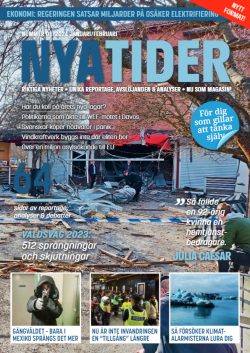Q: What are the causes for today’s crisis in the country in your opinion?
– First of all, the opposition has been long pointing out that the eleven-year reign of Milorad Dodik and his followers has caused numerous economic and political problems in our society and an extra high level of corruption and crime that directly involved the people from the political top of the SNSD. There is serious evidence of it that even they do not contest, but there is no work being done by the law-enforcement institutions, primarily by police that handles the investigations, and the prosecution that has jurisdiction and is in charge of carrying out proceedings. The Republika Srpska is in this vicious cycle of debt bondage.
Today, the Republika Srpska is run by the IMF and not the local government, nor the government led by Milorad Dodik and Željka Cvijanović. Financial dependence on international financial institutions has put the Republika Srpska under the dictatorship of the West, which Dodik denies, but is essentially leading the people in that direction.
At present, the Republic Srpska is unable to finance its current budget obligations to its citizens, because 35 percent of the total original budget funds have to be used for paying off the existing debt’s interest during one budget year. Every fourth day in the Republic Srpska is being financed from the loans: every state worker and all of the costs of administration in all of the Republic Srpska. Every fourth day is being financed from the loans and adverse loans at that.
In that way this existing government brought the IMF in as an unavoidable factor in the functioning of the system, and with that fell in to all sorts of political demands set by the IMF. We are against that, against their policies that leave us in this situation. When they came to power, they had a budget surplus and available funds from privatization and the succession of the old Yugoslavia. They had half of today’s debt which they doubled and also led Republika Srpska into debt bondage. The way out is to change this incompetent government, the way out is to establish a transitional government of national salvation that would ensure fair, democratic elections, at which, at last, we would form a government that would live in a rational, rather than the irrational world that Dodik and his followers seem to live in.
Q: However, the government accuses the opposition, saying that it has blocked a lot of credits…
– That is completely untrue, a clear lie. Here, I’ll give you an example. I talked with the Minister of Finance, Mr. Bevanda from HDZ, a party that has long been one of the closest friends of the ruling SNSD. Mr. Bevanda blocked that letter that came from the government of Russia, in which the government of Russia is prepared to make a payment of the debt of 120 million real dollars in cash [the debt was converted to real dollars, auth. note], which is unprecedented for any other country that has debts.
They suggested that the payment should be made so that two thirds of the funds go to the Federation and one third goes to Republika Srpska. Serbian ministers in the Council of Ministers had nothing against it, but guess who did? HDZ’s Minister of Finance Mr. Bevanda. And do you know why? Because at the level of Bosnia and Herzegovina there is a law concerning the distribution of assets of the succession, the property acquired by succession of property from the former Yugoslavia, and that law was adopted some 15 years ago. It was introduced by the high representative [of the EU] and confirmed by the people from SNSD with their votes in the parliament of Bosnia and Herzegovina. The Law states, and that is the only legal possibility, that any such sum should be distributed as follows: 10 percent to be used by the institutions of Bosnia and Herzegovina, 3 percent by district Brčko, 29 percent by the institutions of Republika Srpska, and 58 by the Federation of Bosnia and Herzegovina.
Mr. Bevanda explained it to me personally, because I was interested in what was going on. He sent a letter on behalf of the Council of Ministers to let the Russian side know there was the Law and ask the Council to prepare a statement explaining that they were unable to act the way the Russian side proposed. That was not the Serbian ministers’ unpreparedness and lack of will on the part of the Council for Change, but the legal framework that prevented the implementation of the plan.
The letter was sent to the Russian Federation by the minister from HDZ, and that was Mr. Vjekoslav Bevanda. And that is the full truth. Any other speculations that can be heard in political circles in regard to the alleged blocking by the members of the Council for Change of the arrangements that the Republika Srpska had agreed upon, are absolutely not true.

Q: What are your plans for the near future, how do you expect to change the government?
– Please, before anything else, it has been a year-long harangue that the government has been engaged in, claiming that the opposition is preparing demonstrations, the goal of which is to take over the institutions by force. We absolutely confute that. We held a peaceful event on the 14th that we had announced as peaceful in accordance with the law on public gatherings. In accordance with that law we took every precaution that the law obliges us to do. We were asking for a peaceful walk, peaceful demonstrations and peaceful protests.
They tried to administratively stop us, but they failed. All the talks about the likeness to “the Arabian Spring”, “Orange Revolution” and what not, including “Ukrainian scenario”, “Macedonian scenario”, all the violent scenarios, were disproved by the fact that everything that the government said would happen did not happen on the 14th.
We are responsible people. We are not anarchists. We are the people that want the best for Republika Srpska; we built it together; I, among other things, by means of armed struggle, because I was in the ranks of the united elite during the war and fought in the Serbian armed forces here in Krajna.
Q: Where do you see the future of Republika Srpska? Do you think there could be a conflict with Brussels and do you think the Dayton agreement could be overturned? How do you see further developments?
– Firstly, there is no dilemma, as the proposed attitude of Republika Srpska to the Dayton agreement is clearly defined by the opposition parties, especially the SDS [the former Serbian Democratic Party which Čavić led, auth. note] that participated in the Dayton agreement. When the Dayton agreement came into being, the majority of today’s parties in power did not exist, apart from the Socialist Party. The price of the Republika Srpska as a political idea was paid mainly by SDS, a party that was led by Radovan Karadzic, who created that political idea, and it was officially and nationally confirmed in Dayton in 1995 and in Paris when the peace was signed.
The idea of the Republic Srpska stated by the Dayton Agreement is, for all Serbian political representatives, inviolable. Nevertheless the fact remains that the Republika Srpska is today being regarded as an internationally accepted right by Serbs in general, both opposition and regime, whereas the Bosnian and Croatian political representatives, that is, the Federation, regard it as an internationally acquired injustice.
That which was agreed upon we have no intention of changing. Republika Srpska has a high level of autonomy inside Bosnia and Herzegovina. Bosnia and Herzegovina is an internationally recognized sovereign state that has a chair in the United Nations, but Serbs in it have 49 percent of the territory, and also they have legislative, executive and judicial power, and they have more then one third of the management rights of the Republic of Bosnia and Herzegovina.
Our position is the best in the Dayton Agreement compared to the other two ethnic groups. Why would we change things? But we have to communicate and make compromises with Croats and Bosnians in this country without any international mediators. We need peace and agreement, and only the Agreement will provide peace. Any experiments in altering the Dayton Peace Agreement, such as various initiatives for the independence of the Republika Srpska, means the overturning of the Dayton Agreement, igniting new conflicts which would be very hard to end diplomatically if at all, and would easily become serious conflicts with weapons involved. It is highly debatable if any new international conference in Bosnia and Herzegovina can claim a better position for Serbs then today’s position established by the Dayton Agreement. We do not need experiments.
Politics is a process, not an event, and in that process we need to make very rational and reasonable decisions. If our strategic goal is integration into the EU, and that is proved by the opinion polls among the citizens of Republika Srpska, we should make a contribution to that. This contribution can be made in a decentralized country in accordance with the fundamental principles of the Dayton Agreement as it has already happened before. The notion expressed by the irrational institutions of Bosnia and Herzegovina that we need nothing but centralization of the country is not going to be accepted by the Council for Change.
Q: Serbian media wrote that the opposition was helped by the Soros Foundation…
– That’s a total lie! A total lie. In order for you to understand who works with Soros I will give you a copy of the “Glas Srpski” newspaper from 1998, when Milorad Dodik was the Prime Minister during his first term. He personally welcomed the director of the Soros Foundation, together with Biljanja Plavsic, with whom he, by means of a coup, overturned the rule of Radovan [Karadzic]’s SDS. The director of the Soros Foundation came to Banja Luka in 1998, and Dodik promised him that he would create an environment for all of Soros’s projects in the territory of Republika Srpska. [It is widely known that Milorad Dodic at the beginning of his political career was a leaning to the West, but then became disappointed and switched to a pro-Russian and strongly pro-Serbian policy, auth. note].
Nobody on our side has anything to do with Soros. It is hard to imagine that Soros is funding SDS, “guilty of the war crimes of Karadzic”, and qualifies SDS as a political organization. Do you know that the Lautenberg Amendment is still in effect, due to which all the members of SDS are unwelcome to the American administration? Imagine that Soros is financing a political organization and its leaders engaged in an alleged overthrow of Milorad Dodik and that he finances the party of Radovan Karadzic.
Doesn’t that sound a little bit like science fiction to you? And to just clear the whole situation, we filed a lawsuit against all of those who published that lie and we are asking the police and judicial systems in Republika Srpska to carry out an investigation and determine the real truth. That is outright fake, and we will investigate in Serbia to find out who put the fake information in the media and why, whose intention it was to say that the opposition was being financed by someone on the side. We are not being financed by anybody, and we are not supported by anybody but the people who believe in us.































